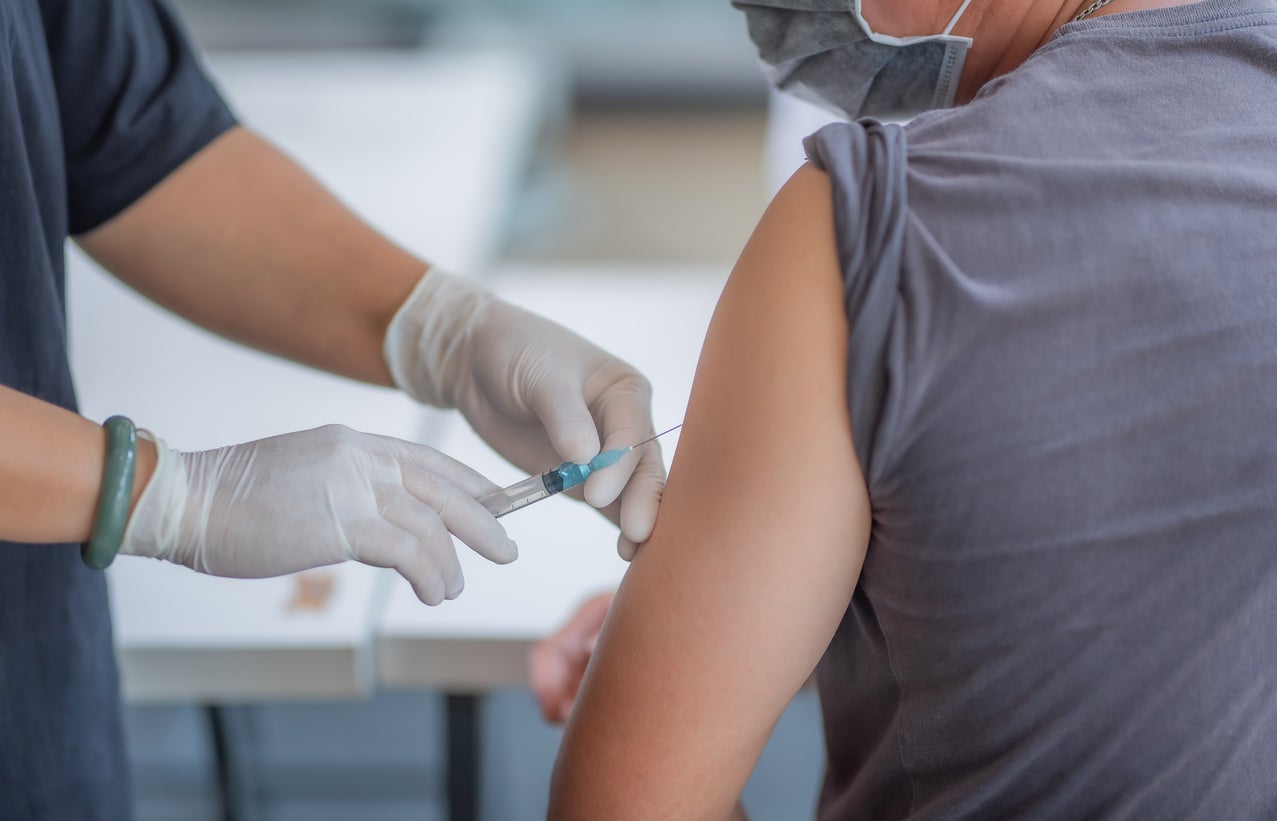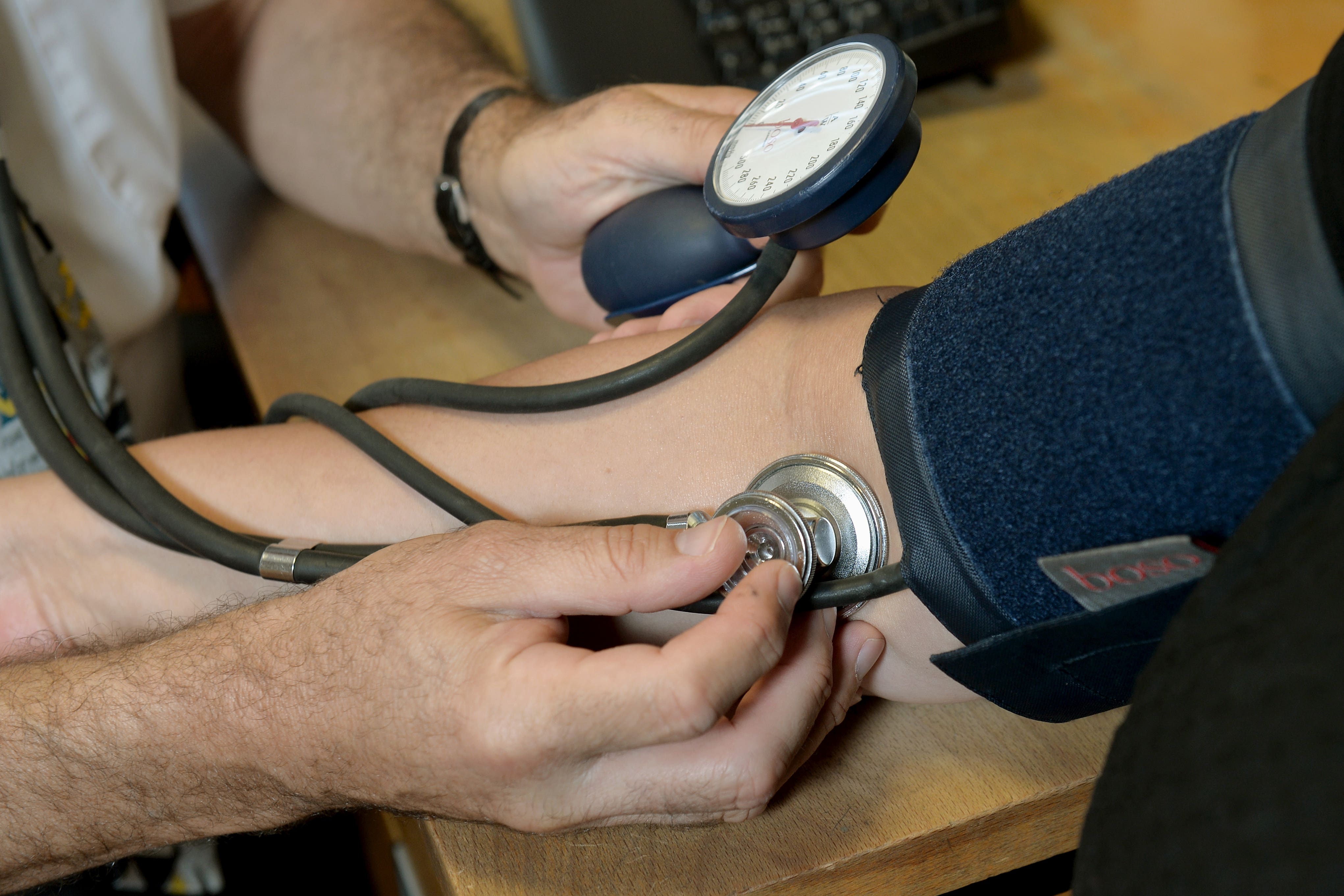Major breakthrough for patients facing ‘silent killer’ as new injection could replace drugs
High blood pressure is known as the silent killer as its symptoms often go unnoticed until it’s too late

Your support helps us to tell the story
From reproductive rights to climate change to Big Tech, The Independent is on the ground when the story is developing. Whether it's investigating the financials of Elon Musk's pro-Trump PAC or producing our latest documentary, 'The A Word', which shines a light on the American women fighting for reproductive rights, we know how important it is to parse out the facts from the messaging.
At such a critical moment in US history, we need reporters on the ground. Your donation allows us to keep sending journalists to speak to both sides of the story.
The Independent is trusted by Americans across the entire political spectrum. And unlike many other quality news outlets, we choose not to lock Americans out of our reporting and analysis with paywalls. We believe quality journalism should be available to everyone, paid for by those who can afford it.
Your support makes all the difference.A major breakthrough has been made for millions of people suffering with high blood pressure, which is the leading cause of heart attacks and strokes.
British medics have been trialling the world’s first injection to control the “silent killer”, which could replace daily drugs.
Known as Zilebesiran, the medication works by targeting a key hormone produced by the liver. The jab, produced by US-based Alnylan Pharmaceuticals, is designed to be given every six months.
Experts at Queen Mary University of London recruited 107 patients with hypertension, of whom 80 were given an injection of zilebesiran under their skin and 32 received a placebo with no active ingredients.
Five of the 32 patients who were on the placebo were later given zilebesiran.
The MailOnline reports that initial analysis showed that volunteers who were given zilebesiran experienced a significant drop in systolic blood pressure which lasted up to six months.
Systolic blood pressure, namely the pressure in your arteries when your heart beats, lowered by more than 10mmHg at least a 200mg dose and 20mmHg at the highest of 800mg.
The drop can take a patient’s high blood pressure into a safer range.
Despite high blood pressure being difficult to treat due to its fluctuations across a day, zilebesiran resulted in a consistent drop over 24 hours.
The medication prevents the production of angiotensin, a hormone that narrows blood vessels and causes blood pressure to rise.

Reporting their preliminary data, the research group said: "Overall, these preliminary data… support the potential for further study of quarterly or twice-yearly administration of zilebesiran as a treatment for patients with hypertension."
Professor David Webb, who led the trial in Edinburgh, added: "This is a potentially major development in hypertension. There has not been a new class of drug licensed for the treatment of high blood pressure in the last 17 years.
"This novel approach leads to a substantial reduction in blood pressure, both by day and night, that lasts for around six months after a single injection."
High blood pressure is the biggest trigger of heart disease, heart attacks and strokes and if often known as the silent killer, as its symptoms often go undiagnosed until it is too late.
Under NHS rules, it is a reading over 140/90mmHg – with around 12 million people eligible for treatment.
The NHS says that in about one in 20 cases, high blood pressure happens as the result of an underlying health condition or taking a certain medicine.



Join our commenting forum
Join thought-provoking conversations, follow other Independent readers and see their replies
Comments